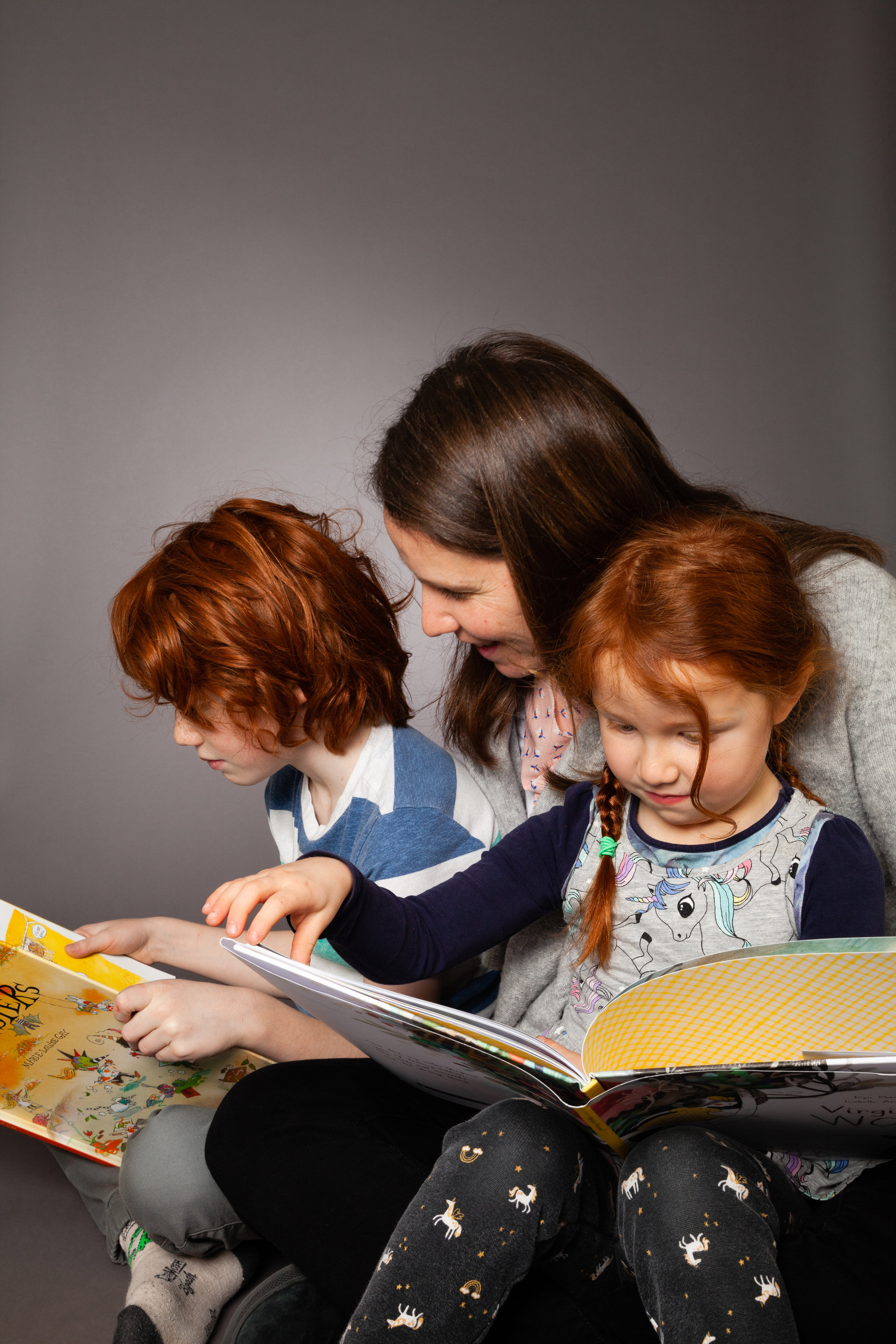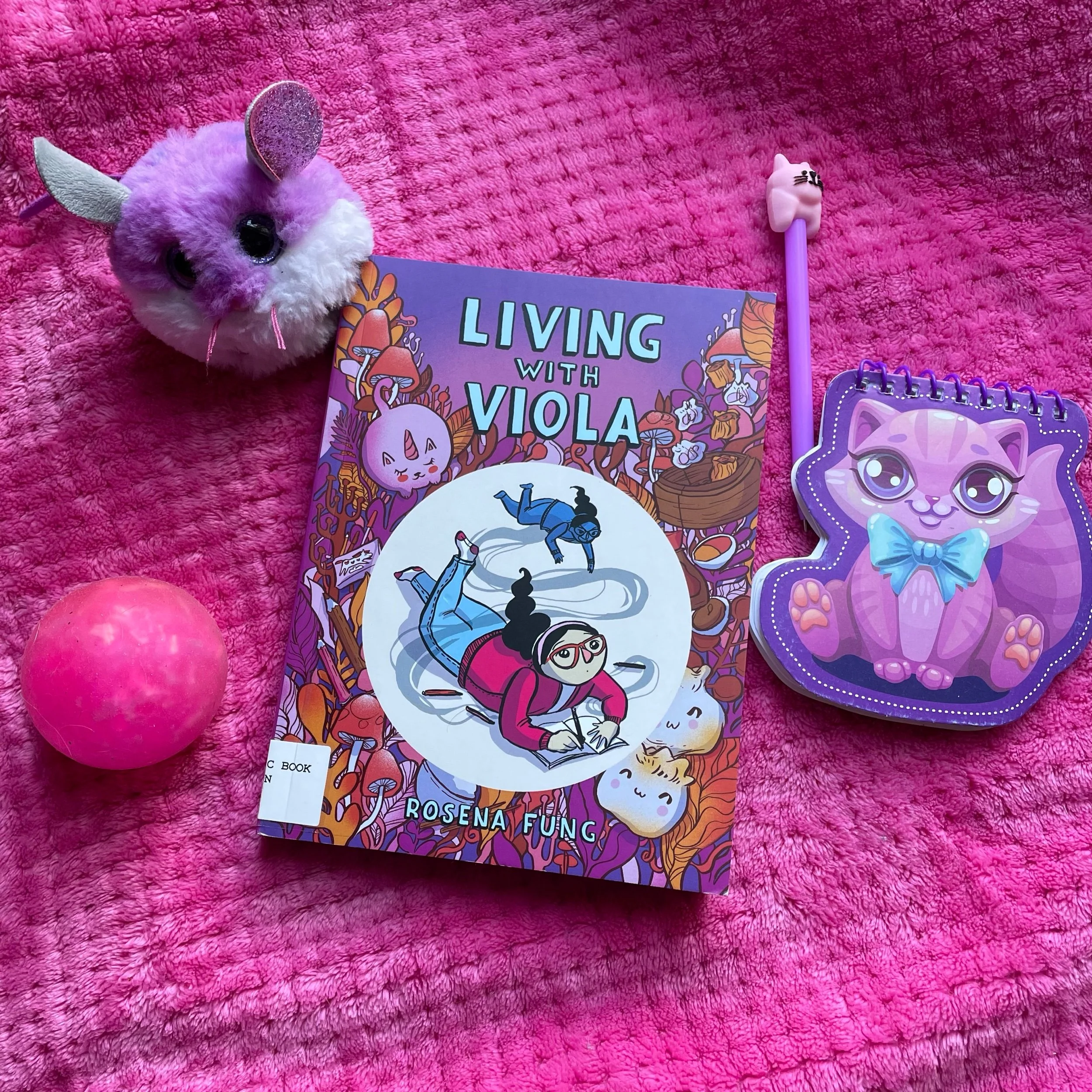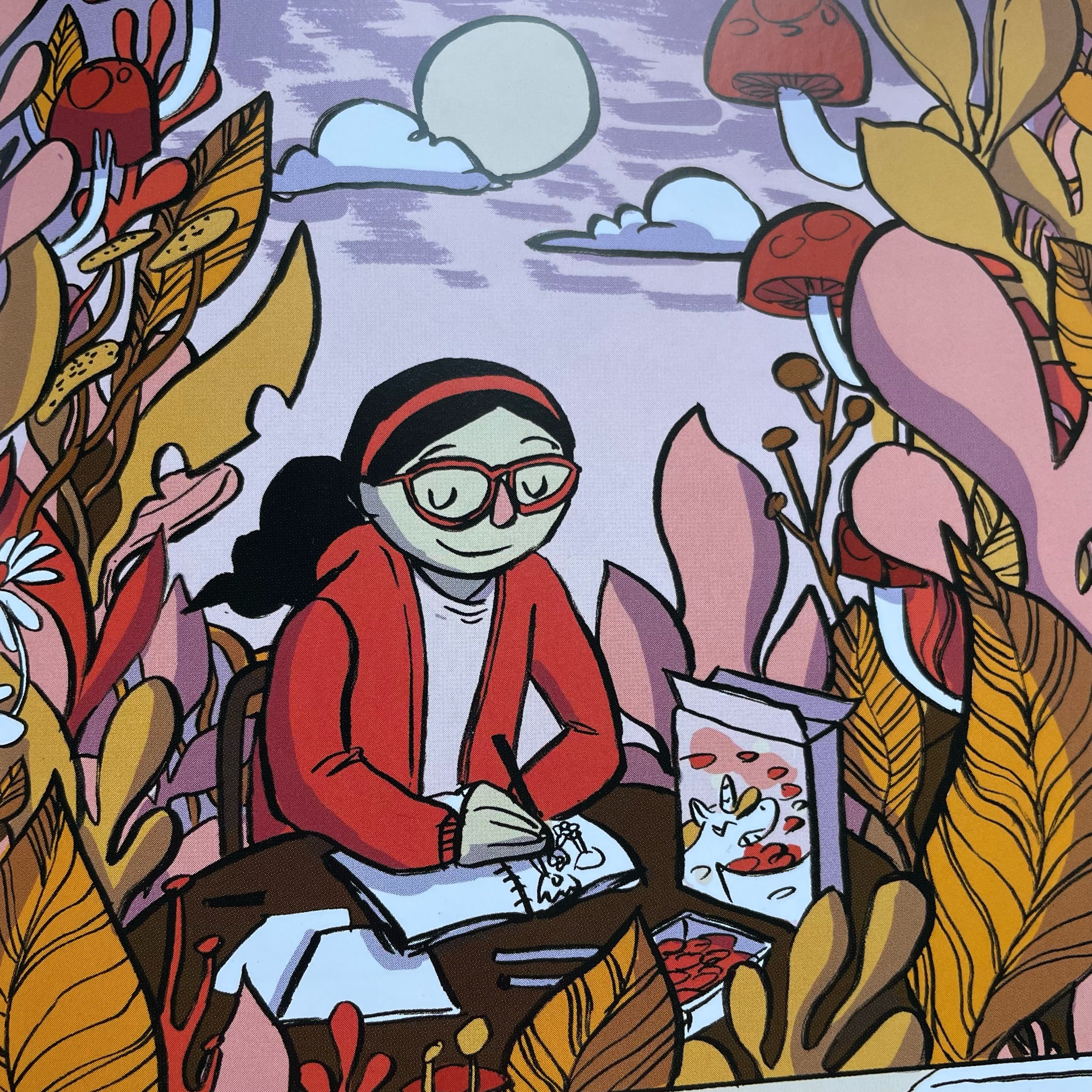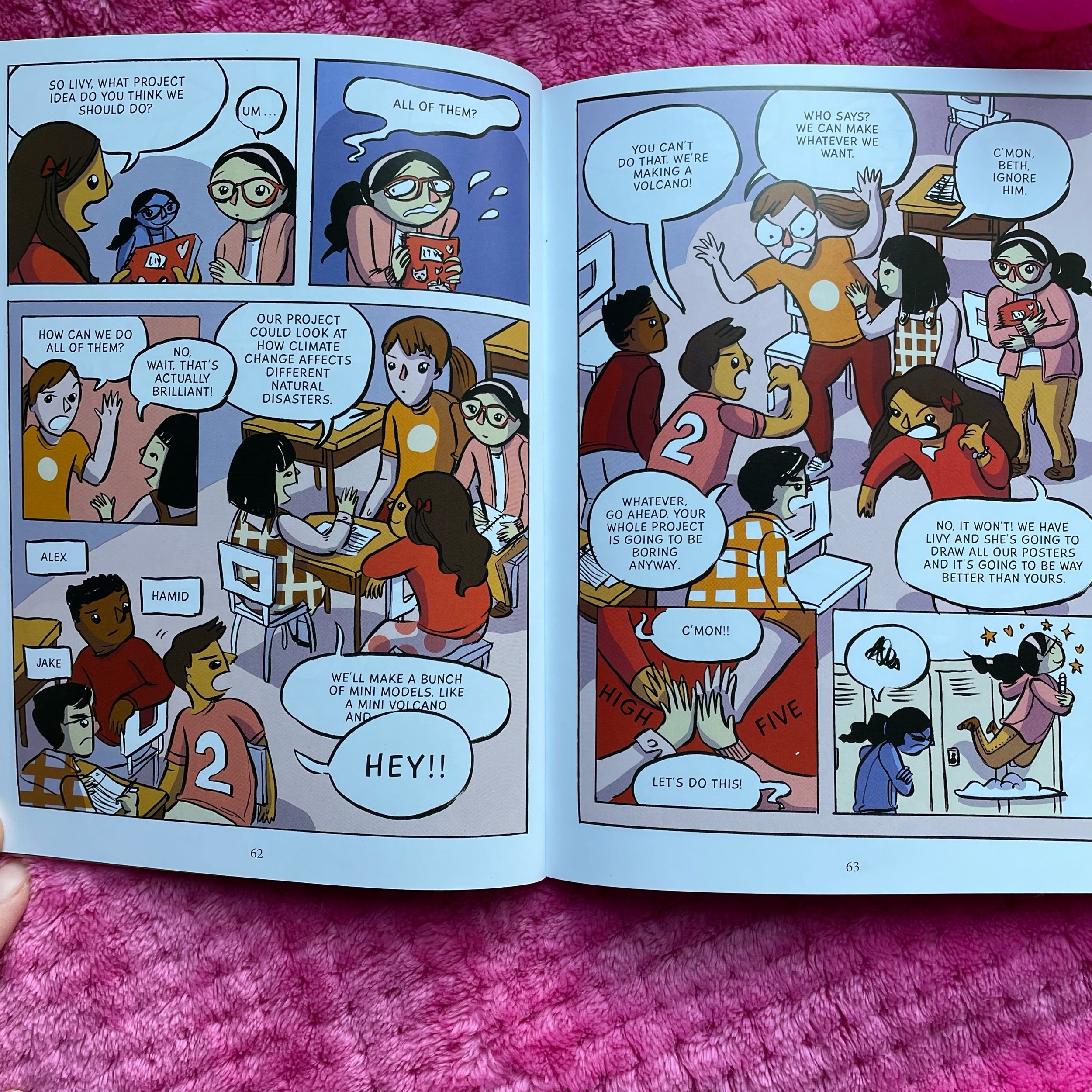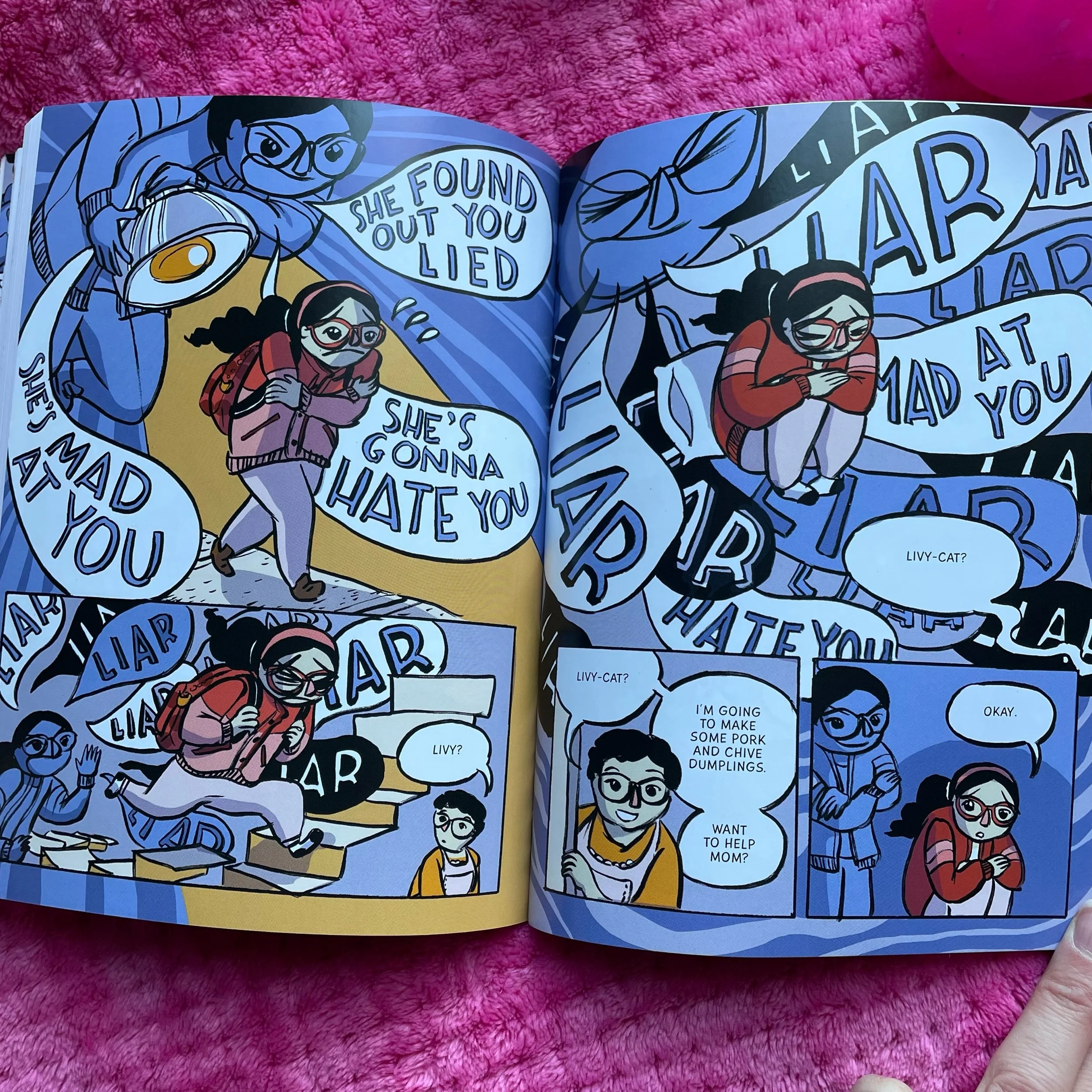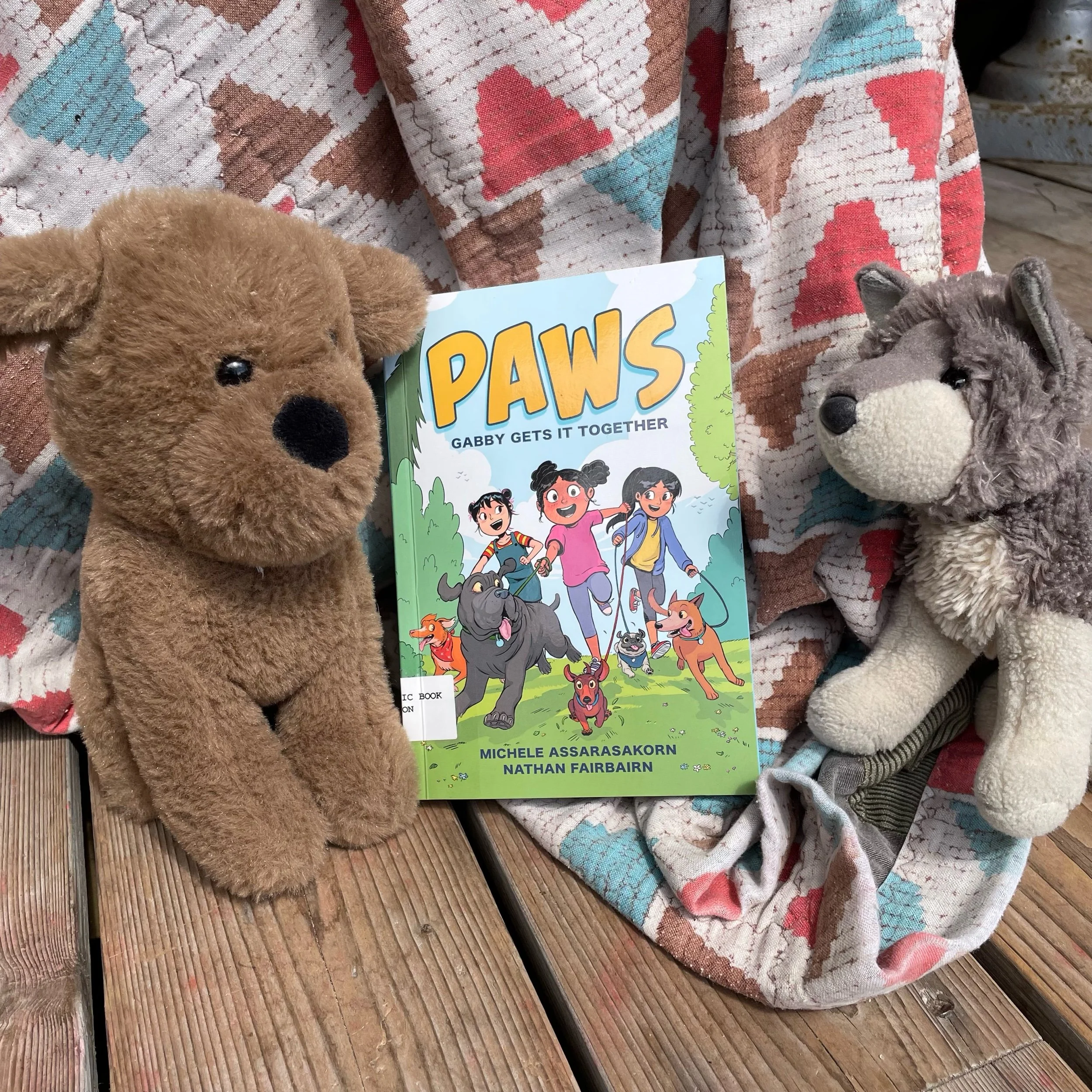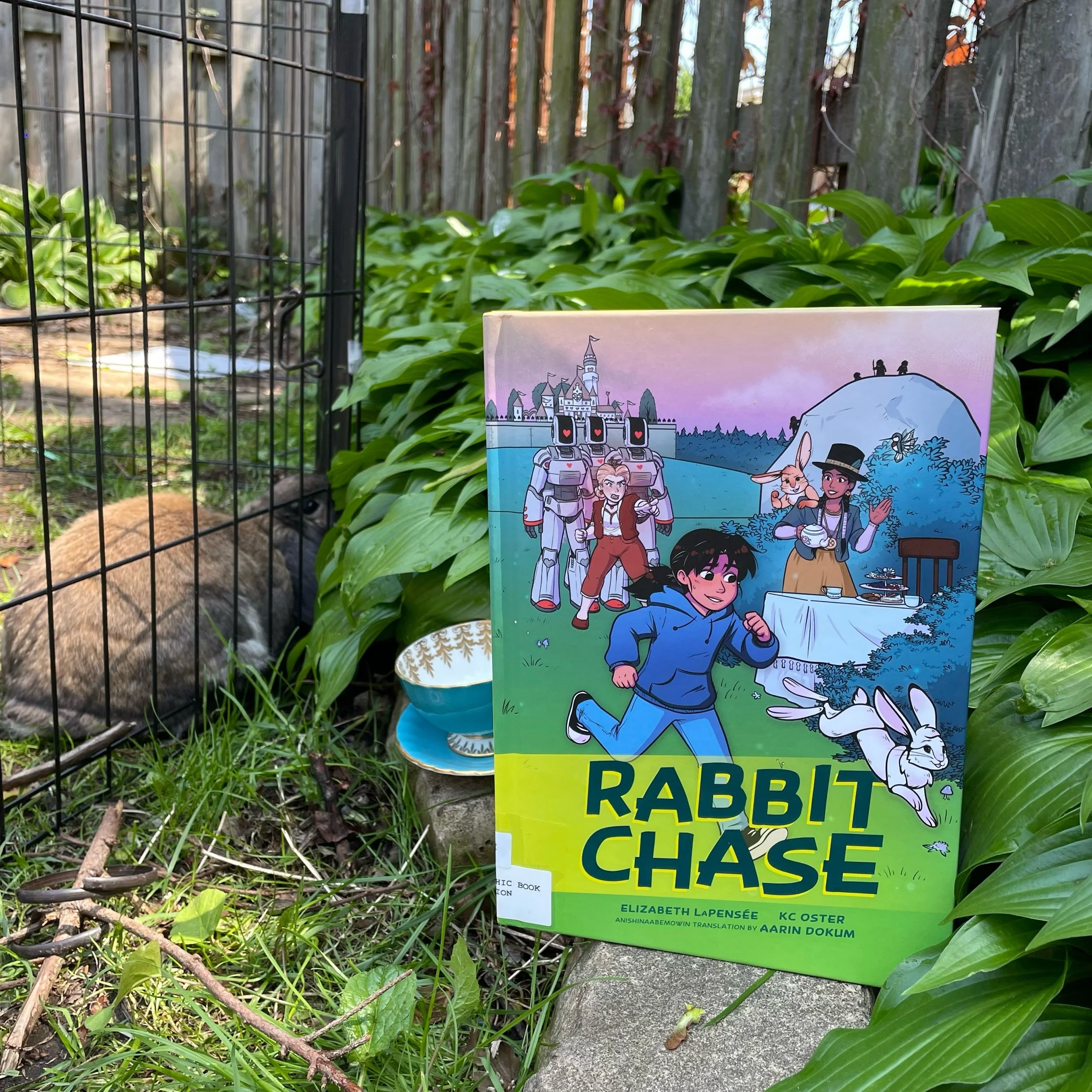Life With Viola
As graphic novels gain in popularity, readers have so many more choices in what they read and we are seeing authors tackling a wide variety of themes in graphic novels. Living with Viola by Rosena Fung is the story of a grade six girl named Olivia and Viola, the manifestation of her anxiety.
Olivia has started at a new school for grade six. She is trying to meet new friends and be a good daughter to her parents. She’s a second generation Canadian, her parents having immigrated to Canada from Hong Kong before she was born. There is a lot of expectation put upon her not only by her parents, but most evidently, by her extended family. She’s just trying to be a normal grade six child but Viola, her anxiety, keeps whispering in her ear, feeding her cruelty and sadness. When Viola becomes too much, she finds the courage to talk to someone and get the help she needs to manage her anxiety.
Living with Viola is a story so many young people will connect with and Olivia will feel like a kindred spirit. With the prevalence of social media, the 24 hour news cycle and the isolation of the COVID pandemic, there is a rise in anxiety and poor mental health in young people all across the world. Many of us have that inner voice that berates us for doing something silly or wrong. It’s when that voice becomes too loud that we need to understand that talking to a trusted person will bring about the help and strategies needed to silence that voice.
The story has some excellent comedic moments. There is even a “we don’t talk about Bruno” moment in the story when the topic of Olivia’s cousin Leonard comes up at dinner one evening. Along with the humour, Rosena Fung writes with incredible honesty. At times Viola is completely brutal, terrorizing Olivia, just as anxiety does for many young people. So many young readers will connect with Olivia and see their own struggled reflected back to them.
The art is brilliant! Filled with different shades of pick, Olivia’s favourite colour and the omniscient Viola in blue always lurking in the background, readers will be invested in the story from the start. I love how Rosena Fung leaves readers, in her note at the end, with the reality that Olivia’s story is similar to her own and that it’s okay to not be okay. It’s also okay to express yourself in whatever way makes you happiest be it through sparkly pink or basic grey.
